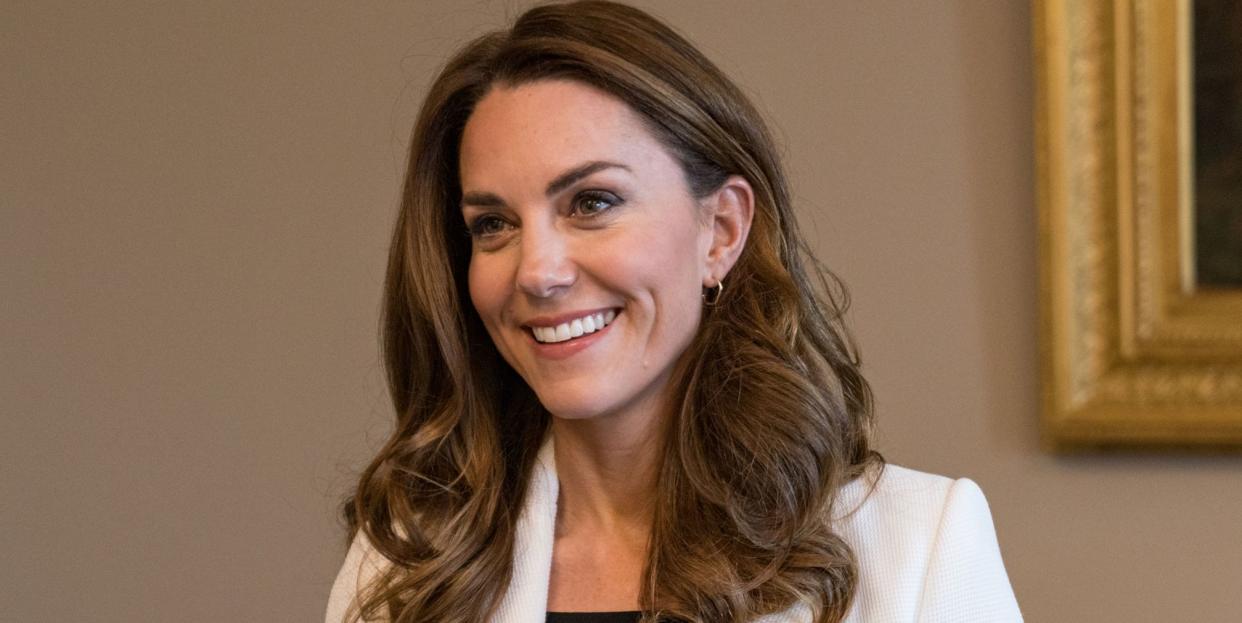Kate Middleton to Reveal the Findings from Her Early Years Research in Key Speech

For almost a decade, the Duchess of Cambridge has been researching the importance of the earliest years of a child’s life, speaking with experts and families across the UK And now she has unveiled the findings of her nationwide study into the subject as she gears up to make a keynote speech.
Research published today follows Kate’s 5 Big Questions survey as well as other studies, including one on how families have been affected by the COVID-19 pandemic. Findings include the fact that 70% of parents in the UK say they feel judged by others and parents have reported a big increase (from 38% to 63%) in loneliness throughout the pandemic.
In Kate’s speech today she is expected to reflect on her years of research in the field. “I have seen that experiences such as homelessness, addiction, and poor mental health are often grounded in a difficult childhood,” she will say. “But I have also seen, how positive protective factors in the early years can play a crucial role in shaping our futures…The early years are not simply about how we raise our children. They are in fact about how we raise the next generation of adults. They are about the society we will become.”
The survey, which was launched in January, received 527,898 responses of which 435,141 were from the UK. Today, Kate will take part in an online forum during which her speech will be delivered. Next year, she is expected to announce plans to help elevate the importance of early childhood.
Kensington Palace says the five key findings from the survey are:
1. People overwhelmingly believe that a child’s future is not pre-determined at birth. However, most people don’t understand the specific importance of the early years.
Answering the 5 Big Questions, 98% of people believe nurture is essential to lifelong outcomes, but just one in four recognize the specific importance of the first five years of a child’s life.
2. The reality of life makes it hard for parents to prioritize their wellbeing.
90% of people see parental mental health and wellbeing as being critical to a child’s development, but in reality people do very little to prioritize themselves. Only 10% of parents mentioned taking the time to look after their own wellbeing when asked how they had prepared for the arrival of their baby. Worryingly, over a third of all parents (37%) expect the COVID-19 pandemic to have a negative impact on their long-term mental wellbeing.
3. Feeling judged by others can make a bad situation worse.
Seventy percent of parents feel judged by others and among these parents, nearly half feel this negatively impacts their mental health.
4. People have been separated from family and friends during the pandemic and at the same time parental loneliness has dramatically increased. Disturbingly, people are also less willing to seek help for how they’re feeling.
Parental loneliness has dramatically increased during the pandemic from 38% before to 63% as parents have been cut off from friends and family. The increase in loneliness for parents is more apparent in the most deprived areas. These parents are more than twice as likely as those living in the least deprived areas to say they feel lonely often or always (13% compared with 5%). Compounding this, it seems there has been a rise in the proportion of parents who feel uncomfortable seeking help for how they are feeling from 18% before the pandemic to 34% during it.
5. During the COVID-19 pandemic, support from local communities has substantially increased for many—but not for all.
Across the UK, communities have united powerfully to meet the challenge of unprecedented times. 40% of parents feel that community support has grown. However, parents in the most deprived areas are less likely to have experienced this increased support (33%) than elsewhere.
You Might Also Like


